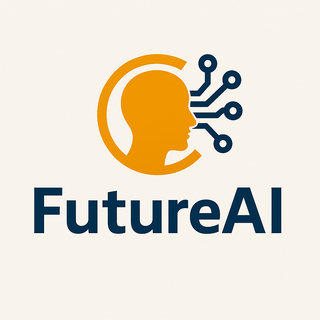4️⃣ AI and Human Collaboration: The Future of Work
As AI continues to evolve, many fear that AI will replace human jobs entirely. However, the reality is more complex. Instead of replacing humans, AI is likely to work alongside humans, creating a new kind of workplace where humans and AI collaborate. Let’s explore how this will shape the future of work.
🔹 1. AI Will Automate Repetitive Tasks, Not Creativity
AI is excellent at performing repetitive, data-driven, and structured tasks, such as:
✅ Data Entry & Analysis – AI can quickly process and analyze large datasets.
✅ Customer Support – AI chatbots handle simple queries, allowing human agents to focus on complex cases.
✅ Manufacturing & Logistics – AI-powered robots improve production efficiency.
🔹 Example: Amazon uses AI-powered robots in its warehouses to speed up deliveries while human workers handle customer service and management.
However, AI still struggles with:
❌ Creative Thinking – AI can generate ideas but lacks original creativity.
❌ Emotional Intelligence – AI cannot understand human emotions as deeply as people do.
❌ Ethical Decision-Making – AI follows logic, but humans are needed for moral judgments.
🔹 2. New Jobs Will Be Created by AI
While some jobs will disappear, AI will create entirely new industries and career opportunities, including:
✅ AI Specialists – AI engineers, data scientists, and AI ethics experts.
✅ Human-AI Trainers – Professionals who train AI models and improve AI behavior.
✅ Creative & Strategic Thinkers – Writers, artists, designers, and leaders will work with AI for innovation.
🔹 Example: The rise of AI has already created demand for AI prompt engineers, who specialize in optimizing AI-generated content.
🔹 3. The Hybrid Workforce: AI + Humans
The future of work will be a collaborative model where AI and humans work together.
✅ AI handles repetitive tasks → Humans focus on complex decision-making.
✅ AI analyzes data → Humans use insights for innovation and strategy.
✅ AI speeds up productivity → Humans provide creativity and emotional intelligence.
🔹 Example: In medicine, AI diagnoses diseases faster, but human doctors interpret results and provide compassionate care.
🔹 4. How Can Humans Adapt to the AI Revolution?
To stay competitive in the AI-driven workforce, humans must:
✅ Learn AI Skills – Understand AI technology and how to use it effectively.
✅ Focus on Human Strengths – Develop creativity, emotional intelligence, and problem-solving skills.
✅ Embrace Lifelong Learning – Continuous learning will be necessary to stay ahead in the job market.
🔹 Example: Companies like Google and Microsoft already encourage employees to develop AI-related skills to future-proof their careers.
🚀 Conclusion: AI Won’t Replace Humans, But Humans Who Use AI Will Replace Those Who Don’t
The key to success in the future is learning to work with AI, not against it. The most successful professionals will be those who can effectively collaborate with AI while leveraging their unique human strengths.



Post a Comment
0Comments